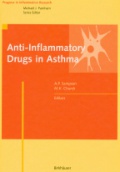Pharmaceutical, Biological and Chemical Patents: A Handbook
Dirk Bühler,Marco Stief,Maximilian Haedicke
ISBN: 9781849464901
Vydavateľstvo: Hart Publishing
Rok vydania: 2014
Väzba: Hardback
Pôvodná cena: 316,44 €
Výstavná cena:
268,97 €(t.j. po zľave 15%)
(Cena je uvedená vrátane 10% DPH)
Katalógová cena: 200 GBP
Nárok na
dopravu zdarma
Termín dodania na našu pobočku v Bratislave je približne 2-3 týždne.
The topic of chemical and biological patents is of special importance in European and German patent law. The highly technical nature of patents in this area gives rise to special problems for patent lawyers in understanding, for instance, structural alterations like polymorphism and enantiomerism, which lead to a derivative of a substance that is comprised in the prior art. It is a legal question whether and under what circumstances such alterations are to be treated as novel, and in which cases they are part of the state of the art. Even if a substance is prior art, a new medical use of it can be patented, and such medical use patents are often intended, as a matter of policy, to promote medical research. Dealing with natural occurrences of a substance, in terms of its accessibility and bioethics, is also a problem for patent law, as is the difficulty of understanding how different identifications of a substance and the resulting patents interrelate with each other, ie how their scopes of protection are defined. This is problematic especially because of the absolute substance protection, which includes all conceivable uses and methods. This publication provides an expert overview of all these questions. Past decisions of the ECJ concerning broccoli- and tomato patents, as well as embryonic stem cells, have highlighted the importance of this field of law. As most of the proceedings regarding chemical and biological patents have been held in German courts it is fitting that the book is authored by two German experts, and this is particularly so as the German jurisprudence has often been the basis for decisions of the ECJ. Thus, German case law is used to illustrate the commentary. The topic is interesting for all attorneys-at-law and all patent attorneys in Europe (in-house and external) working in this field, as well as to Asian and American pharmaceutical and chemical companies that intend to import their products to Europe.
